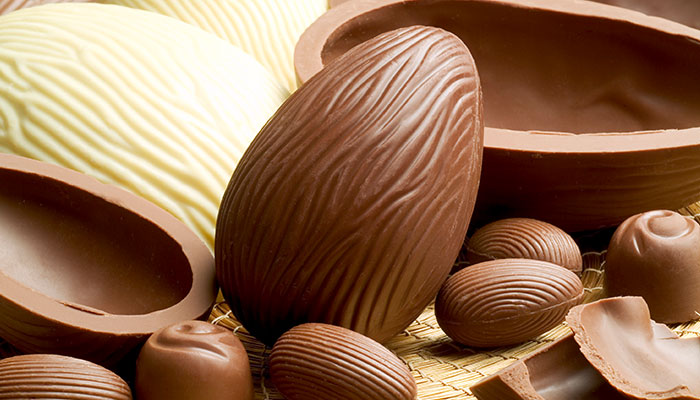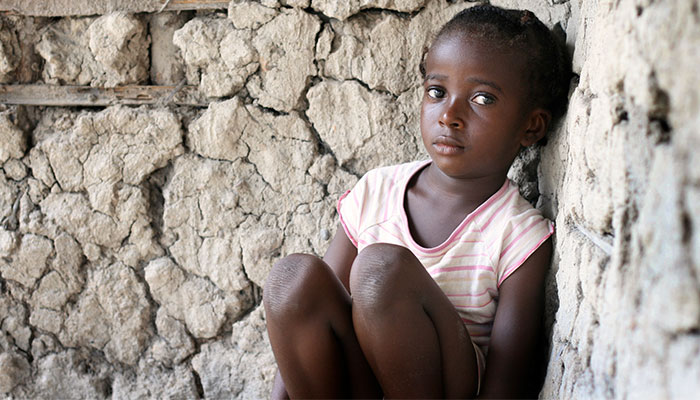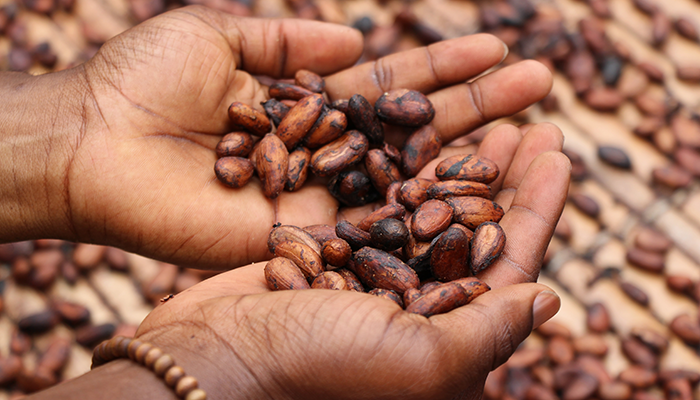Shoppers buying Easter Eggs can support chocolate manufacturers working to improve the lives of millions of people in West Africa - thanks to the 2022 Chocolate Scorecard.

Conscious shopping: the scorecard guides chocolate-lovers on where to ethically spend their Easter confectionary dollar.
Macquarie Business School Professor John Dumay was the lead academic collaborator with the charity Be Slavery Free in producing this year's Chocolate Scorecard – which saw Beyond Good named the 2022 "Good Egg" winner.
"The idea of creating joy for children with Easter Egg hunts and decorated eggs off the trauma and suffering of other children is abhorrent to many," says Professor Dumay.
"Children have been harvesting cocoa in West Africa for at least two decades and a recent report by the US Department of Labor reveals more than 1.56 million children were working to produce cocoa in Cote d'Ivoire and Ghana in 2018-19.
Much of the child labour in West Africa is hazardous, with children carrying heavy loads, using machetes or being exposed to chemicals.
"Children as young as five years old are being denied an education. In addition, 24 per cent of children working in cocoa production are being exposed to agrochemicals - with potentially devastating impacts on their development.
"The Chocolate Scorecard acknowledges those companies working to end the cycle of child slavery and exploitation of people harvesting cocoa in West Africa."
"Beyond Good's award acknowledges its business model best ensures people and the planet are respected and cared for."
League table rates 38 chocolate companies
This week footage emerged of children working with machetes on a cocoa farm that allegedly supplies Mondelez, owner of Cadbury.

Change is happening: the annual Chocolate Scorecard holds companies to account on supply-chain clarity in a bid to end child labour and unsafe farming practices.
"Our concern is that we are not finding more of these children. Much of the child labour in West Africa is hazardous, with children carrying heavy loads, using machetes or being exposed to chemicals," says Be Slavery Free co-director Fuzz Kitto.
"If companies paid farmers a living wage, there would be fewer children forced to work in cocoa production and fewer farmers cutting corners with dangerous pesticides."
The annual Chocolate Scorecard study surveyed chocolate traders, processors and manufacturers, allowing the creation of a league table of 38 of the world's top chocolate companies.
Companies receive a coloured "bunny" reflecting their overall progress across several areas - including supply chain transparency, sustainable farming practices and whether or not children are used in the production process.
A green egg reflects companies pursuing best practice and there is a sliding scale through to the "broken eggs" awarded to three businesses – Starbucks, General Mills and Storck, manufacturer of Werther's Original – which did not to take part.
The 38 companies listed on the Chocolate Scorecard account for up to 90 per cent of global chocolate products – including Easter eggs.
The list includes household names like Mars, Lindt, Nestlé, Mondelez (Cadbury), Ferrero and Hershey's.
US-based Alter Eco, Beyond Good, Whittaker's and Tony's Chocolonely were the "Green Egg" winners – meaning they are the industry leaders in producing sustainable chocolate.
Scorecard forces change
The Chocolate Scorecard was launched more than 10 years ago and there have been significant changes in the industry during that time.
Ferrero now traces the origins of all its cocoa. Lindt has a bean to bar approach where they know every farmer and Mars is developing alternatives to using pesticides.
Tony's Chocolonely was founded in 2009 with the goal of producing 100 per cent slave-free chocolate and is now the market leader in the Netherlands.
"Up to 75 per cent of the world's cocoa comes from West Africa – where it is known as black gold. Economies like Ghana and Cote d'Ivoire and the livelihoods of millions of producers depend on it," Professor Dumay says.
As part of his research, Professor Dumay asked chocolate manufacturers where their cocoa comes from and what they are doing to end child labour. These responses were then verified by researchers working for Be Slavery Free.

Black gold: up to 75 per cent of the world's cocoa - the base ingredient in chocolate - comes from West Africa, where children can be found harvesting crops.
"If they don't know their supply chain, they can't end this exploitation of children and producers," Professor Dumay says.
"We are now seeing companies act because of our research. Chocolate manufacturers say the Chocolate Scorecard is helping guide strategic decisions in the industry."
Current Australian law states that companies must disclose how they are tackling the issue of modern slavery in their supply chains under the Modern Slavery Act 2018.
Link to chocolate scorecard here






